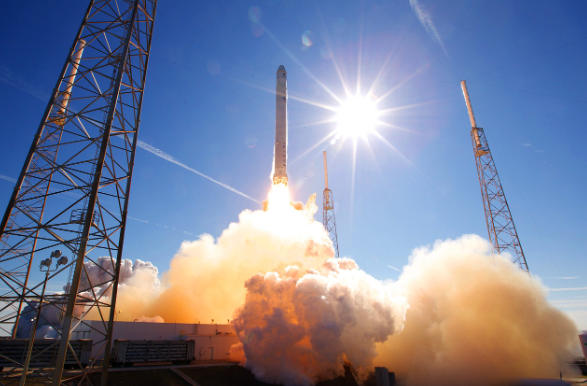Tensions Flare: Israel Shoots Down Iranian Missiles with US Support
On April 13th and 14th, a dramatic escalation occurred in the Middle East. Iran launched a large-scale attack on Israel using drones and ballistic missiles. Israel, with critical support from the United States and its allies, managed to shoot down nearly all the incoming projectiles. This unprecedented event has heightened regional tensions and raised concerns about a wider conflict.
The Attack:
Details surrounding the attack remain fluid, but reports suggest Iran launched over 300 drones and missiles towards Israel. This marks a significant escalation, as it’s the first time Iran has directly attacked Israeli territory. The motivations behind the attack are unclear, but they may be linked to a suspected Israeli airstrike on an Iranian embassy in Syria.
Israel’s Defense:
Israel’s Iron Dome air defense system played a pivotal role in intercepting the Iranian projectiles. This highly effective system uses radar to detect incoming threats and launches interceptor missiles to destroy them before they reach their targets. While the Iron Dome has seen success in previous conflicts, the sheer scale of this attack presented a significant challenge.
US and Allied Support:
Crucially, the United States and its allies, including the United Kingdom, played a supporting role in defending Israel. US forces stationed in the region, likely with advanced radar technology and missile defense capabilities, reportedly intercepted a significant number of Iranian drones and missiles before they entered Israeli airspace. This joint effort significantly bolstered Israel’s defenses and contributed to the success of the interceptions.
Aftermath and Reactions:
The attack resulted in minimal damage on Israeli soil, with most projectiles being intercepted. However, the event has sparked international condemnation of Iran’s actions. US President Joe Biden reaffirmed his “ironclad” commitment to Israel’s security and condemned the attack as a violation of international law. He also praised US forces’ “extraordinary skill” in aiding the defense.
Israeli Prime Minister Benjamin Netanyahu is currently weighing a response to the attack. While calls for retaliation have emerged domestically, the US has reportedly urged restraint. The international community is pushing for de-escalation to prevent a wider conflict.
Uncertainties and Potential Consequences:
This event raises several critical questions about the future of the region. Here are some of the potential consequences:
- Escalation: The attack could lead to a cycle of retaliation, potentially drawing the US and other regional powers into a wider conflict.
- Nuclear Tensions: This event may further strain relations between Iran and the West, especially regarding the Iranian nuclear program.
- Domestic Politics: Both Israel and the US are facing upcoming elections. This incident could be used for political gain by hardliners on both sides.
- Regional Instability: The attack highlights the ongoing tensions in the Middle East and raises concerns about the region’s long-term stability.
The Path Forward:
In the coming days and weeks, the world community will have a challenging task ahead of it. De-escalation procedures are essential to stop additional violence. Long-term stability will also depend on resolving the conflict’s underlying issues, which include Iran’s nuclear program and the continuous hostilities between Israel and its neighbor’s.
Additional Points of Interest:
- The effectiveness of the Iron Dome system is likely to be re-evaluated following this large-scale attack.
- The role of US intelligence in providing early warning of the attack is still unclear.
- The potential economic impact of the event on the region needs to be monitored.
Conclusion:
Tensions in the region have significantly increased as a result of Iran’s recent attack on Israel. Although the immediate threat seems to have been mitigated, more research is needed to understand the event’s long-term effects properly. De-escalation efforts and addressing the root causes of these crises are imperative for the international community.
